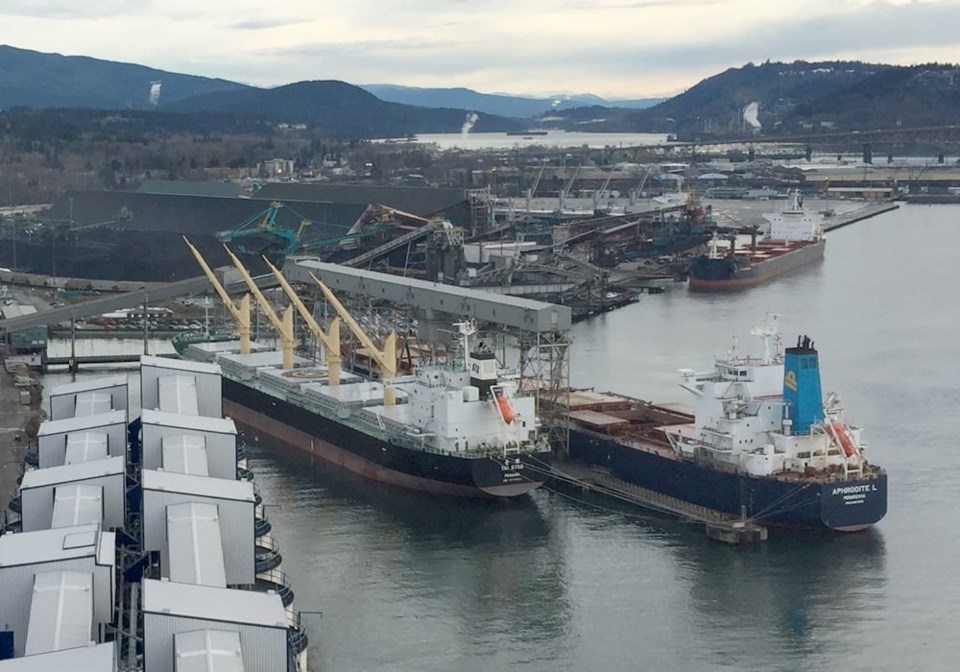A recent strike involving federal employees at the Port of Vancouver had no significant impact on export shipments of grains and oilseeds, said officials in charge of Canada’s Grain Monitoring Program.
“The short answer is no, we saw no impact on the loading of vessels at any of the ports,” said Mark Hemmes, president of Quorum Corp., the Edmonton firm contracted to manage the GMP.
“The CGC (Canadian Grain Commission) had procedures put in place that saw management staff handling the outward inspections. It worked well,” Hemmes added.
About 12,000 federal employees represented by the Public Service Alliance of Canada went on strike April 19, including port workers.
Workers represented by PSAC reached a tentative labour agreement May 1. The union said the tentative deal will result in a 12.6 percent wage increase for workers over four years. It also included a one-time lump sum payment of $2,500 for each employee.
The workers had been without a collective bargaining agreement since 2021.
As far as export grain shipments are concerned, Hemmes said all federal port workers returned to work on May 1.
“Everyone is back on the job,” he said in a May 3 interview.
Worker duties include collecting composite samples during vessel loading, grading samples, estimating dockage and monitoring export cargoes for contaminants.
Hemmes said there were concerns before April 19 that vessel loading and issuance of export certificates could experience costly delays, but those fears never materialized.
In fact, 13 grain vessels were loaded and cleared from Vancouver in Week 39, (the seven-day period ending April 30) and two more were cleared at the Port of Prince Rupert in northern British Columbia.
As of May 4, 14 vessels were waiting to be loaded at Vancouver. That’s the smallest vessel lineup the port has seen since last August.
“From everything I’ve heard from all the guys at the terminal level, it went along as well as anybody could expect,” Hemmes said.
“The fact that Vancouver put out 13 vessels last week and 10 the week before, it does not appear as if anything was lost in the fray.”
Hemmes said grain car unloads continued at a fairly strong pace during the last half of April.
Grain inventories at port terminals were a bit higher than expected in Week 38 (the seven-day period ending April 23) but vessel loadings during Week 39 were expected to bring port inventories down considerably.
With western Canadian seeding operations now in full swing, grain deliveries in the country elevator system are also dropping rapidly.
Farmer deliveries were down to slightly more than 500,000 tonnes in Week 38 and were expected to be lower yet in Week 39 and Week 40.
“This is very typical for this time of year as seeding progresses,” Hemmes said.





